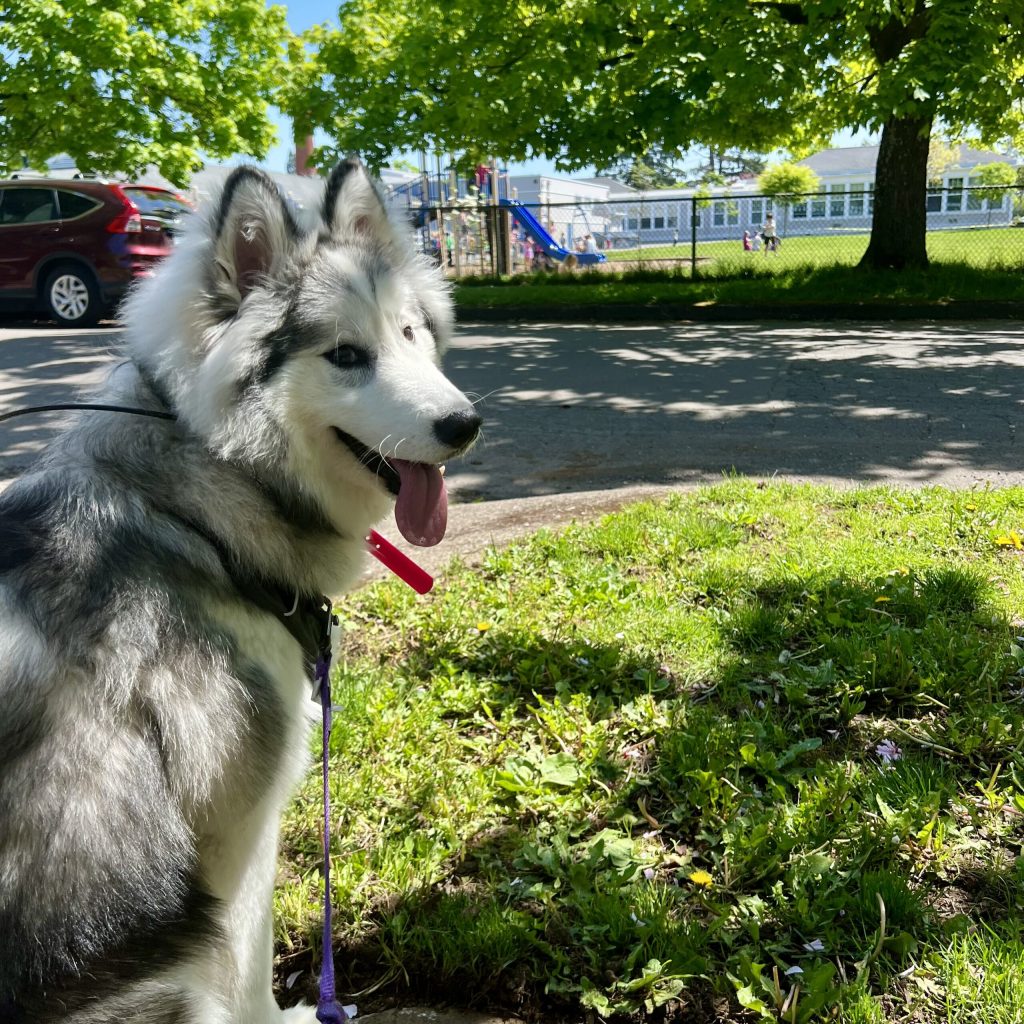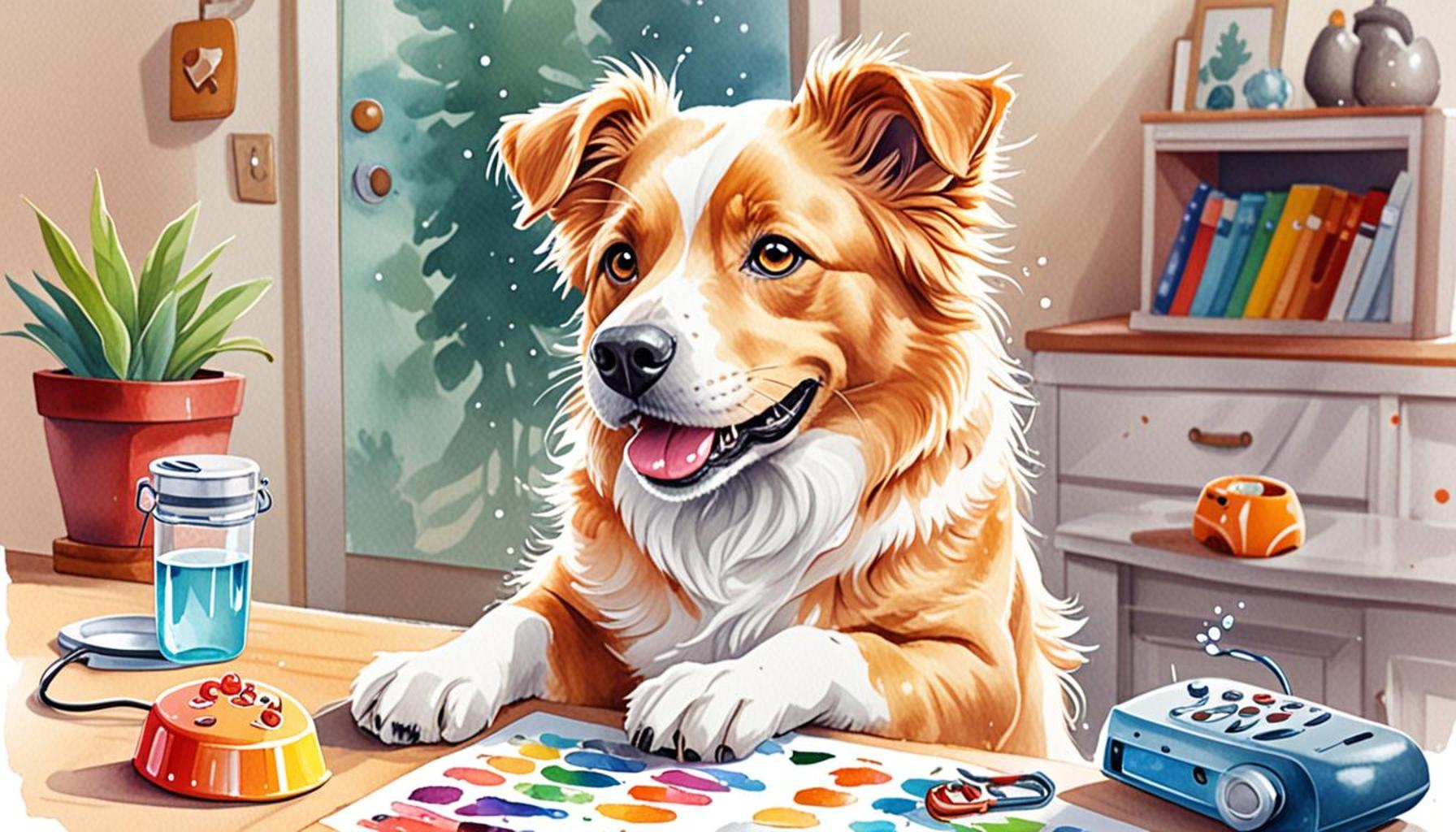The Importance of Early Socialization in Puppy Development

The Importance of Early Socialization in Puppies
Understanding early socialization in puppies is essential for raising dogs that are not only well-adjusted but also capable of thriving in various environments and situations. The initial weeks and months of a puppy’s life are foundational for shaping their future behavior and outlook on life. This crucial socialization period greatly influences a puppy’s temperament, safety, and ability to handle new experiences, ultimately contributing to a harmonious household.
Why Early Socialization Matters
Research indicates that puppies are most impressionable between 3 to 14 weeks of age. During this window, they experience significant developmental changes. The following factors underline the paramount importance of early socialization:
- Exposure to Various Environments: Puppies thrive when introduced to diverse stimuli, such as bustling urban streets, quiet parks, and various indoor settings. This exposure prepares them to cope with different surfaces, sounds, and smells they might encounter later in life. Owners can facilitate this exposure by arranging playdates with other vaccinated puppies, visiting dog-friendly stores, or attending outdoor puppy events.
- Reduction of Fear Responses: Positive early experiences can drastically minimize the risk of developing fear-related behaviors. For instance, a puppy that has been gently exposed to the sound of thunderstorms or the sight of bicycles is less likely to develop anxiety in those situations. Socialization includes positive encounters with various people—adults, children, and even people in costumes or with unusual appearances—which is vital to building their confidence.
- Behavioral Development: A well-socialized puppy is less inclined to display fear, aggression, or excessive barking. Learning appropriate play behavior with peers under guidance can mitigate future aggression issues. Behavioral problems often stem from fear-based reactions in adult dogs; hence, early intervention is vital to curbing such tendencies.
Structured Socialization Experiences
In the United States, numerous veterinarians and dog trainers highlight how crucial socialization classes can be for young puppies. These classes provide a structured environment where puppies can engage with one another and learn essential social skills under professional supervision. The American Kennel Club (AKC) has been a vocal advocate for socialization, offering resources and recommendations on best practices for owners.
Aside from classes, pet owners can encourage social sources by inviting friends over to meet their new puppy or taking them to community events. Parks that host dog meet-ups or pet expos present excellent alternatives for hands-on learning and interaction. Engaging in these activities forms a well-rounded dog that fits smoothly into family life, exhibiting behaviors that are not just manageable but desirable.
The Long-Term Benefits of Early Socialization
Investing time and effort into training and socializing your puppy can lead to remarkable outcomes. Well-socialized puppies tend to grow into adaptable adult dogs, equipped for a wide array of experiences. This adaptability enhances their emotional health, making them affectionate companions throughout their lives. Not only will they thrive in diverse situations, but they will also bring joy and stability to their human families.

In conclusion, early socialization is a fundamental part of a puppy’s growth journey and pivotal to their future interactions with the world. By understanding and implementing effective socialization strategies, you can foster a confident, sociable, and happy adult dog, ensuring a lasting bond with your furry companion.
DISCOVER MORE: Click here to learn how socialization impacts your pets
Understanding the Critical Period of Socialization
The early weeks of a puppy’s life are not just a time for playful antics and growing curiosity; they represent a crucial window for socialization that will shape their personality and behavior in the years to come. This phase—typically deemed as the socialization period—spans from approximately 3 to 14 weeks of age. During these weeks, puppies are remarkably receptive to new experiences. The impressions formed during this time form the bedrock of their confidence, behaviors, and interactions with other beings, both canine and human.
Numerous studies have emphasized just how pivotal these weeks are. For instance, a study conducted by the American Veterinary Society of Animal Behavior revealed that puppies who receive early socialization are more likely to grow into well-adjusted and sociable adult dogs. The absence of these experiences can lead to various behavioral issues, such as anxiety and aggression, making early intervention and socialization all the more vital.
Key Components of Effective Socialization
To effectively socialize a puppy during this critical window, certain components must be incorporated:
- Diverse Encounters: Puppies should be introduced to a wide variety of people, environments, and situations. This might include exposure to children, seniors, individuals with disabilities, and even people in unusual attire, like costumes or uniforms. The goal is to foster a sense of security in a spectrum of encounters.
- Controlled Interactions: Positive interactions with other well-mannered dogs and puppies are essential, as this teaches them how to communicate and set boundaries. Supervised puppy playdates or structured training classes can provide these valuable opportunities.
- Positive Reinforcement: The experiences must be associated with positive outcomes. Treats, praise, and play can reinforce good behavior during socialization. The more enjoyable the experience, the less likely the puppy will develop fears associated with that situation.
- Gradual Introduction to New Stimuli: New sounds, sights, and textures should be gradually introduced—whether it’s the sound of traffic, riding in a car, or walking on grass. This helps puppies become well-rounded and adaptable to various life situations.
It’s important to note that while these experiences should be fun and positive, they must also be carefully managed to prevent overwhelming the young puppy. Balance is key; overstimulation during this period can lead to negative associations with new experiences. Consequently, each encounter should be short but impactful, allowing puppies to explore without feeling threatened.
Learning through Play
Another vital aspect of early socialization revolves around play. Puppies learn a multitude of social cues and behaviors through playful interactions with their littermates. Activities like tug-of-war, chasing, and wrestling help them navigate the complex world of canine communication. By learning to play in a controlled environment, they develop critical skills such as bite inhibition and conflict resolution, which are paramount for future interactions.
By understanding these essential components, owners can provide their puppies with a rich tapestry of experiences that will ultimately ensure they grow up to be sociable, confident, and loving companions.
Early socialization is critical to the development of puppies, as it sets the foundation for their behavior and interaction with the world. It encompasses exposing puppies to various stimuli, environments, people, and other animals during their formative months. This exposure is crucial because it helps them become well-adjusted adults, reducing the likelihood of behavioral issues such as aggression and fearfulness.One of the primary advantages of early socialization is that it enhances a puppy’s ability to adapt to new situations. When puppies experience different sounds, sights, and smells, they learn to remain calm and confident in unfamiliar environments. This adaptability is essential not only for their development but also for their safety, as a well-socialized dog is less likely to panic in challenging situations.Additionally, socialization plays a vital role in promoting positive interactions with other animals. Puppies that meet a variety of dogs during their critical socialization period are less likely to develop fear or aggression towards unfamiliar dogs. They learn essential communication skills and body language that facilitate peaceful and enjoyable interactions. Moreover, early socialization fosters better relationships with humans. Puppies exposed to a diverse array of people will be more comfortable around strangers, thereby making them better companions for families and individuals alike. This comfort reduces the risk of fear-related challenges as the puppy grows into adulthood.Overall, the importance of early socialization in puppy development cannot be overstated. It provides a broad spectrum of experiences that contribute to a puppy’s emotional and psychological growth, ensuring that they become well-rounded, sociable, and happy adult dogs. Encouragingly, taking proactive measures in socializing puppies can lead to healthier lifelong behavioral patterns, making it an essential aspect of responsible pet ownership. To further underscore the significance of early socialization in puppy development, consider the following table which highlights key aspects of this crucial process:
| Socialization Area | Key Benefits |
|---|---|
| Exposure to New Environments | Builds confidence and reduces anxiety in unfamiliar situations |
| Interactions with Other Dogs | Develops healthy social skills and reduces aggression |
| Time with Diverse People | Encourages comfort around strangers and enhances friendliness |
LEARN MORE: Click here for insights on the adoption process
Consequences of Insufficient Socialization
While the benefits of proper early socialization are well-documented, the implications of omitting this critical phase can be dire for both the puppy and their human companions. Puppies that lack sufficient socialization frequently exhibit signs of anxiety and fearfulness as they mature. This manifests in various destructive behaviors, such as excessive barking, biting, or even aggression towards perceived threats. According to the American Kennel Club, approximately 1 in 5 dogs is reported to exhibit behavioral problems that stem from poor early socialization, leading to a tumultuous relationship between the pet and their owner.
Moreover, unsocialized dogs have a higher propensity for developing phobias, such as fear of thunderstorms or fireworks, which can result in anxiety-driven escape attempts. Such distress not only impacts the dog’s quality of life but also poses substantial safety risks. In extreme cases, overreacting to common occurrences can lead to harm imposed on the dog or others, highlighting the need for families to thoroughly engage in their puppy’s early training and experiences.
The Role of Owners in Socialization
The responsibility of socializing a puppy does not rest solely on professional trainers; owners play an integral role in this process. Pet parents need to be proactive in seeking out socialization opportunities. The importance of enrolling in puppy kindergarten classes cannot be overstated. These classes not only allow for essential interaction with humans and other dogs, but they also serve as excellent environments for puppies to learn basic commands and etiquette.
In addition to training classes, dog parks can be another excellent resource. However, owners should approach these environments with caution, especially with very young puppies. Supervised visits can encourage social behaviors while allowing owners to monitor their puppy’s reactions, ensuring they have positive experiences. Observing their puppy’s body language is crucial; signs of discomfort or fear should prompt immediate intervention, whether that means removing the pup from the situation or distracting them with treats or toys.
Incorporating Socialization into Daily Life
Beyond formalized classes and parks, early socialization can be integrated into everyday life. Simple activities like taking a walk in the neighborhood expose puppies to various sounds, sights, and smells. Introducing them to different surfaces, such as gravel or grass, helps develop confidence. Additionally, allowing positive interactions with friendly neighbors or visiting pet-friendly businesses can reinforce social skills.
It’s essential for owners to remember that socialization is a continuous process—it doesn’t end when the puppy reaches 14 weeks. Puppies maintain a heightened sensitivity to new experiences until they reach about six months of age. Therefore, ongoing exposure to novel environments and interactions will help solidify the behaviors fostered during their earliest weeks.
The importance of facilitating a well-rounded socialization experience cannot be understated. Engaging and encouraging a puppy to explore the world with a positive mindset sets the foundation for a happy, confident adult dog. As dog owners embrace this journey of discovery, they not only enhance their puppy’s quality of life but also nurture a bond that will last a lifetime.
DISCOVER MORE: Click here to learn about community success stories through animal adoption
Conclusion
In conclusion, the significance of early socialization in puppy development cannot be overstated. Proper socialization paves the way for emotionally balanced and well-adjusted adult dogs. By engaging with various environments, people, and animals during their formative weeks, puppies learn to navigate the world with confidence, reducing the risk of anxiety-related behavioral issues that often plague unsocialized dogs.
As observed, the ramifications of neglecting this crucial aspect of development can lead to lifelong challenges for both pets and their owners. Dogs with insufficient socialization frequently develop fear-based phobias and destructive behaviors, which disrupt their lives and can strain the human-animal bond. Recognizing that socialization is not a one-time event, but rather an ongoing journey, is essential for responsible pet ownership.
Moreover, as pet owners embrace the role of active participants in their puppy’s socialization journey, they contribute to cultivating a thriving and harmonious atmosphere at home. In addition to puppy classes and safe park visits, everyday activities can serve as opportunities for enrichment and exposure. Engaging your puppy in simple walks, meeting friendly neighbors, or visiting pet-friendly locales fosters a sense of adventure and security that will last for years.
Ultimately, the effort put into early socialization is an investment that pays off in countless ways, from increased happiness and stability in your puppy’s life to the deepening of the bond shared between pet and owner. By prioritizing the importance of early socialization in puppy development, we open the door to a fulfilling partnership that enriches both lives for generations to come.



